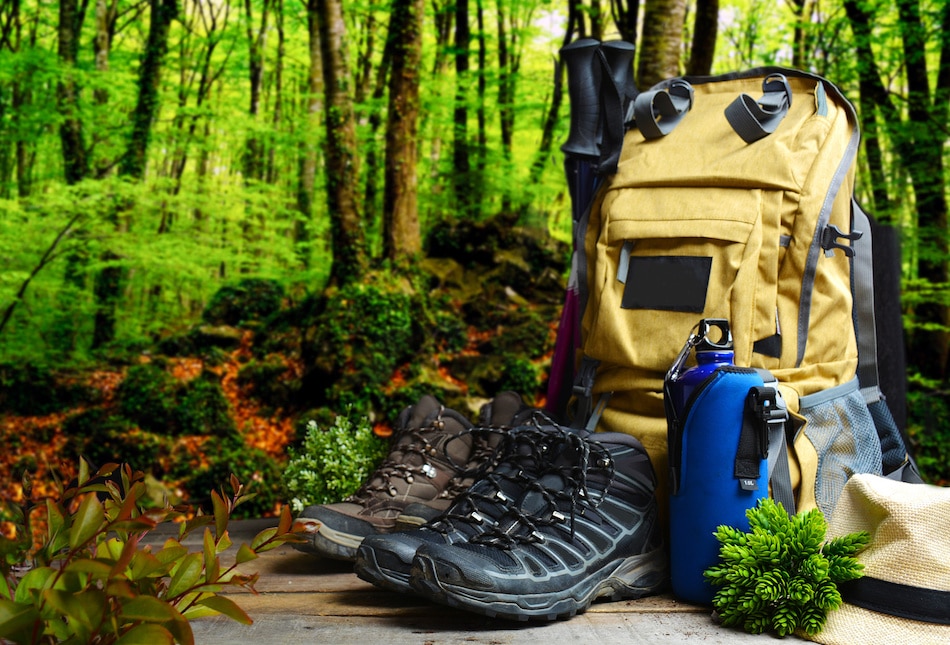When overnight outdoor excursions become stressful, it tends to negate the intention of most campers—to decompress and relax amid the peaceful great outdoors.
What We'll Cover
Our busy work and family life often cause our stress levels to go way up. To handle the stress, many people turn to gyms, eating out or other things in an effort to reduce their stress. But what many don’t know or need to be reminded of, camping does release stress. Few people would argue that the smell of fresh morning coffee from a campsite coffee pot doesn’t help melt the stress away.
But why stress over what to bring camping? Follow these tips for packing right for campouts and heed these camping packing hacks. Then you will be on the right path to a much more pleasant experience.
Getting Started: Basic Tips for Outdoor Camping
The most important tip we have is for campers is making a list of what is realistically necessary depending on the destination and the length of the journey. Case in point, keep it simple, and cover the basics first. Physical health and camping safety is essential, so ensure that any people and pets traveling have appropriate vaccinations to prevent infection with common diseases amid the destination. It’s also important to pack the right camping cooking equipment and utensils.
Beyond preventive health measures, minimize the packing list to sticking with covering major survival needs: provisions, shelter and clothing. Here are some camping packing hacks:
Smart Tricks for Camping Provision Preparations
Smart food and water preparations are by far one of the most important aspects of wilderness survival. If an RV is in the plans, there shouldn’t be any concerns with cooking and storing food. However, tent, shelter, and backwoods campers should lead towards one-dish meals and those that can be cooked in easy to carry camping cookware over the campfire or other heat source.
Consider prepping meals at home, either by cooking them entirely in advance or doing the cutting and chopping in advance to ease the process. Think about eating pre-prepped and cold foods first and saving canned and dry goods for meals later in the trip, and don’t forget about those freeze-dried nutrition packed meals that only require adding hot water for extra convenience. Most importantly, make sure that all foods you store and prepare are kept at and/or cooked to proper temperatures.
Clothing Considerations: Be a ‘Minimal-ista’
Campouts aren’t generally the best time to become a fashionista. After all, part of the thrill of the experience is the opportunity to take a break from looking fresh every day. Take only the clothes needed for comfort and those necessary for activities that are planned. Do take a few extra pairs of socks, plan a wardrobe for layering clothes, and include a rain suit or jacket for inclement weather surprises.
Situations for Campout Shelter
Again, if those with RV’s have shelter covered, but it’s important to make sure it’s in good working order before departure. Double check fluids, get a tune up if needed and make sure insurance is up-to-date. Tent campers should pull out the tent and inspect it for any signs of damage or mold. If rain is possible, consider waterproofing the tent. Confirm again with any reservations held at parks or RV spaces to avoid last minute surprises.
Additional Camping Hacks & Last Minute Tips
Our first ‘last minute’ tip is—don’t wait for the last minute to begin packing. This is when things get forgotten, and the flurry of packing the day before leaving can be stressful on everyone. Pack the vehicle ‘backwards’ with a ‘last in, first out’ approach. That way things needed first to set up camp are accessible right away. Take time to check the weather forecast for a week or two before the trip. That gives time to make any last minute plan adjustments if Mother Nature plans a surprise. And last, but not least, here’s a quick list of the most forgotten items to make sure are packed:
- Extra keys for bike locks, vehicles, and key fobs
- Car or solar cell phone charger
- Sunglasses and sunscreen
- Paper and plastic goods like baggies, toilet paper and paper towels
- A tarp for beneath the tent or eating spaces
- A lighter or matches and a flashlight or two with extra batteries
- Insect repellent
These tips should ensure that the next campout is a smash. Still have questions or need gear? Contact a local camping professional today.
The responses below are not provided, commissioned, reviewed, approved, or otherwise endorsed by any financial entity or advertiser. It is not the advertiser’s responsibility to ensure all posts and/or questions are answered.


![Tips to Go Camping With a Toddler [Different Weather]](/assets/images/375a17532f44c72a41d33b1008823cf3.png)


